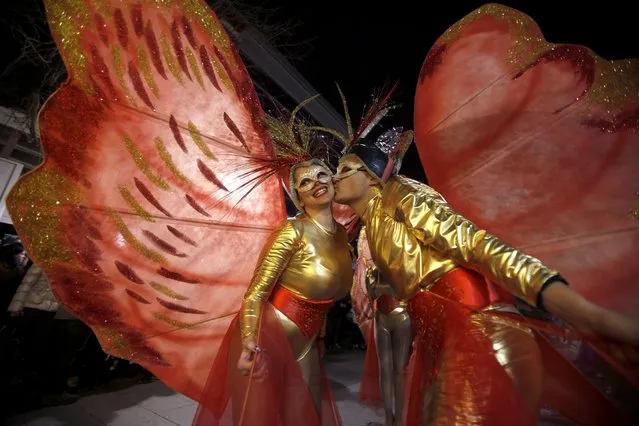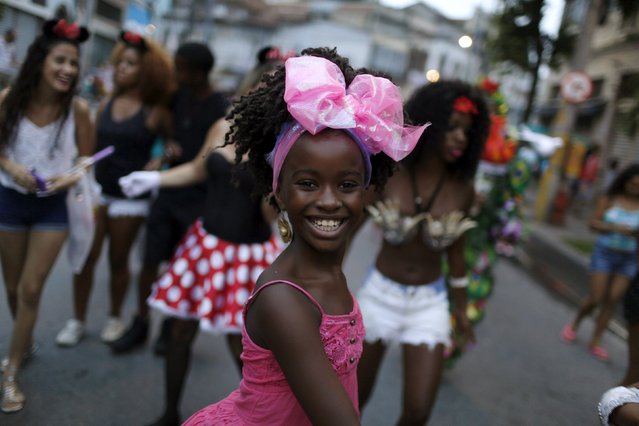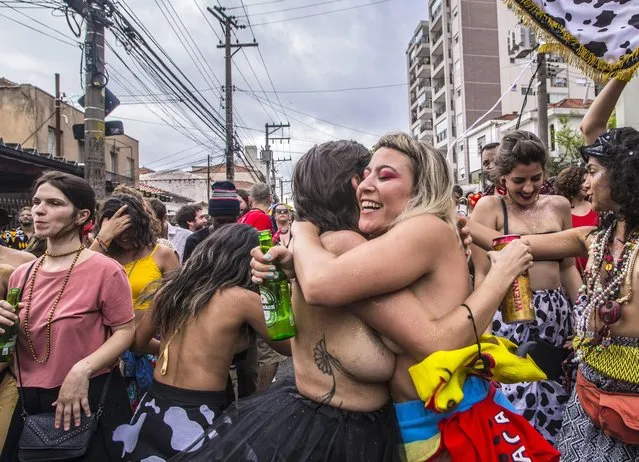
Costumed revelers perform during a carnival procession in the southeastern Macedonia's town of Strumica, Saturday, February 21, 2015. Strumica carnival is held every year during the Christian Orthodox holiday Trimeri, marking the beginning of the Easter fasting period. (Photo by Boris Grdanoski/AP Photo)
02 Mar 2015 07:24:00,post received
0 comments







